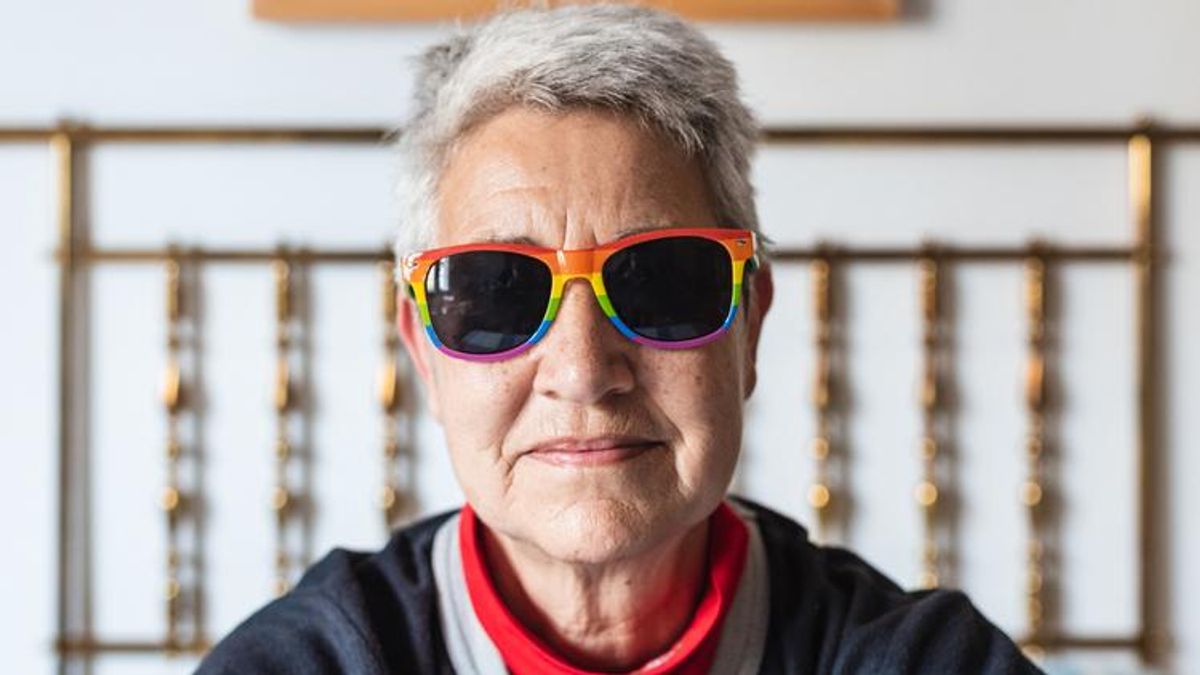A survey conducted by Oregon's Human Services Department has found that most older lesbian, gay, or bisexual people in the state have reported experiencing discrimination and many also reported experiencing elder abuse.
The agency found that LGB older adults experienced higher rates of poverty, suicidal thoughts, and overall economic instability. Respondents described issues getting appropriate health care and social services, such as food or transport assistance, partly because of their identity. Older LGB people in the state also reported feeling isolated from others.
"We still fall under all the things that happen to older adults," said Mary Rita Hurley, the 62-year-old lesbian cofounder of the advocacy organization LGBTQ Aging Coalition, told The Salem Reporter. "Then on top of that, particularly depending on how old the older LGBTQ person is, there is still an amazing amount of stigma out there. We still have people in the closet."
Hurley also runs Our House of Portland, which is a residential care home for those living with HIV. She and other advocates urged the Human Services Department to commission the survey -- a first for the state.
Liz James, a member of the LGBTQ Aging Coalition, presented the survey's findings to the state's Senate Interim Committee on Human Services, Mental Health, and Recovery. James told the committee about her own experiences as a 66-year-old out lesbian.
"I've been chased and beaten up because of who I am," James said, according to The Salem Reporter. "I've lost many friends to the HIV epidemic."
She discussed some of the key findings in the survey.
Over 50% of respondents had unmet social service needs. More than 30% found it difficult to pay their bills, and 21% reported having suicidal thoughts.
The almost 60% of queer older adults that reported discrimination of some sort noted that it was due to their sexual orientation or gender identity 56% of the time, age 42% of the time, or gender 30% of the time. Black, Asian American and Pacific Islander, and Native American or Alaska Natives, reported significantly higher rates of discrimination.
Twenty-four percent said they had suffered from elder abuse, yet 76% of those who reported experiencing abuse did not go to the authorities.
"This is pretty stunning," James said.
State lawmakers called the survey findings worrying. Republican state Sen. Bill Kennemer said the survey provided "alarming and concerning data," according to the paper.
Democratic Sen. Kate Lieber, the Oregon Senate's first out lesbian senator, said it was "an incredibly important topic." She said that she'd support legislation aiding the older LGB adult population.
"I'd love to partner in any other legislation to really push this forward," Lieber said.
The survey had been in the making since 2018. It was led by Karen Fredriksen Goldsen, a professor at the University of Washington who studies health disparities and aging in marginalized populations.
Fredriksen Goldsen had previously conducted a similar study in Washington and has received federal funding to conduct a nationwide study of LGBTQ+ older adults in the U.S.
In Oregon, she estimates that 7% of Oregonians 55 and older are LGBTQ+ -- about 100,000, according to the paper.
"It's a growing population that deserves attention by the area agencies on aging and the state of Oregon," Fredriksen Goldsen said. "They're a high needs group that's often invisible. People don't even realize they exist."
Jane-ellen Weidanz, an administrator in the department, said the amount of older adults not feeling comfortable reporting their abuse is "distressing." She also was surprised that about a third of respondents lived alone.
According to The Salem Reporter, the agency will meet with advocates to discuss the next steps in January.
"If you have a segment of our community, our state that doesn't have that natural support woven into their life, what does that mean for us as a system?" Weidanz said.



















































































